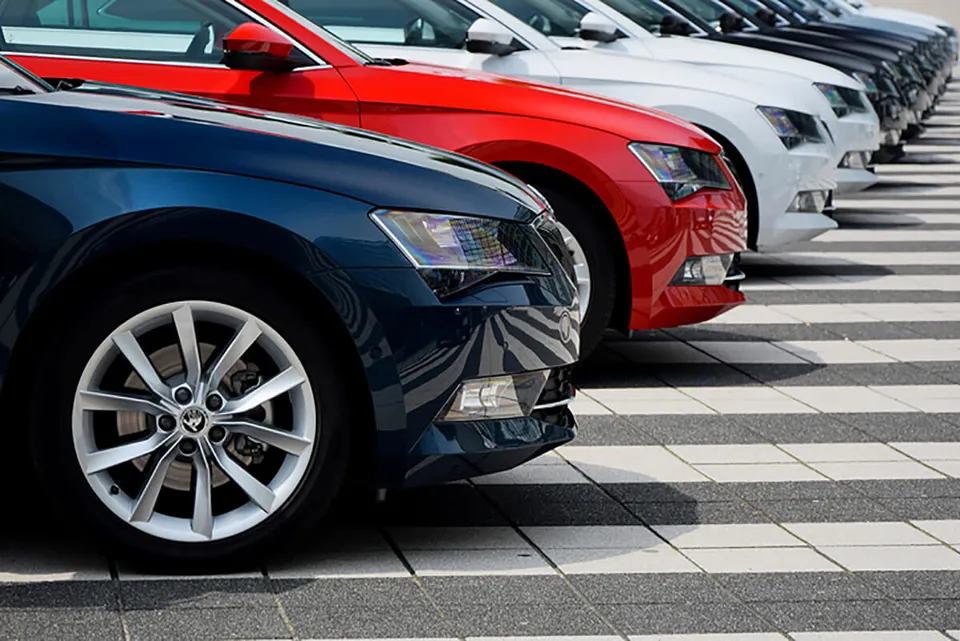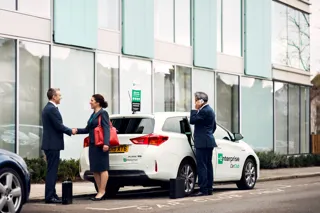The column inches devoted to Mobility as a Service (MaaS) and its new corporate-embracing offspring Business Mobility as a Service (BMaaS) have not led to a revolution in the way organisations move their people, goods and services about. At least, not yet.
Vehicles are still king in the world of the fleet operator. The UK vehicle parc continues to grow, despite three consecutive years of decline in car sales.
Nevertheless, the first shoots of change are starting to manifest in the way some blue-chip companies consider their impact on the environment. And the flood of regulation permeating local authorities and combined metropolitan regions, as they wrestle with air quality challenges, rising congestion and the need to attract people and investment into their city centres, is forcing others businesses to take notice.
Views from the UK’s biggest contract hire and leasing companies, at the coalface of change, are mixed about the speed of uptake of alternative transport options, although most believe we are a few years away from noticeable adoption, the FN50 survey suggests.
Research carried out by Arval under its Mobility Observatory survey of fleets across Europe last year, revealed that cars will “remain the core method of mobility for the foreseeable future”, according to deputy managing director Elliott Woodhead.
He points to the lack of real infrastructure to sustain alternative solutions outside of London, adding: “Although mobility solutions have an appeal to certain demographics, for the majority of the country the car remains the easiest, most practical and most popular choice.”
Those contrasts become even more extreme in rural communities, as evidenced by Northern Ireland-based Donnelly Fleet.
“With a smaller population than GB, there is still a big rural population requiring transport solutions and neither the rail or transport network within Northern Ireland are yet a viable cost-effective alternative,” explains general manager Anthony Magee.
Propulsion methods will change, though, as the national drive towards cleaner air, with new charging zones tackling the dirtiest engines, encourages adoption of electric vehicles (EVs).
Ogilvie says the ‘road to zero’ “has started” with a move towards EVs. It anticipates a pace of change “never before seen in our industry” as fleet demands change to meet new transport policies.
“Like it or not, these changes are coming and we need to embrace them as early as possible,” says sales and marketing director Nick Hardy.
Arval has seen new market dynamics result in greater demand for flexible funding solutions such as short- and medium-term rental, which allow customers to make quick decisions to accommodate new regulations or more efficient technologies.
But this isn’t for everyone, and some customers – notably SMEs – are looking more closely at used vehicle leasing as a way to reduce costs, albeit this does little to minimise their environmental impact.
Arval’s view is supported by research from Alphabet, which has been one of the more progressive leasing companies in the development of alternative mobility schemes, for example, its AlphaCity car share programme.
Nevertheless, the company highlights that even the most basic and predictable journeys – the daily commute – are dominated by the car, with almost three-quarters of British workers believing it is “absolutely essential”, says chief commercial officer Simon Carr.
He adds: “Clearly, the way our vehicles are powered and how they fit into our connected daily lives is changing. But, while the UK’s relationship with the car is evolving, it remains more important than ever in connecting people, communities and businesses.”
Zenith firmly believes there will not be a move away from cars and vans to other mobility solutions despite local authorities’ urban transport policies.
Managing director Ian Hughes says: “Both solutions are deeply rooted into the fabric of the UK’s business behaviours. Alternative solutions will be an ad hoc addition to the established mobility model.”
The biggest trend, according to salary sacrifice specialist Tusker, is a move from ownership to usership with people enjoying the benefits of all-inclusive cars with insurance, repairs, maintenance, MOT, breakdown, road tax all included in a fixed monthly cost. This includes company car drivers who have opted to take cash.
“That’s the real behaviour change; consumers don’t want the hassles that come with running a car,” says Tusker chief executive Paul Gilshan.
However, ALD believes there will be continued growth in alternative mobility solutions, although it is unsure how it will impact company cars and vans – at least in the short-term.
Head of consultancy Matt Dale points to the global macro and local micro trends that are driving behavioural change, including urban population growth, air quality, environmental concerns and the changing demands of demographic groups.
ALD has also identified a move from the traditional ownership model towards usership with car share, ride share and developing technology around connected and autonomous vehicles helping to define the change. MaaS and on-demand solutions also offer an alternative to the car, but their influence remains tiny in the grand scheme.
“The car continues to play a vital and relevant place in our overall mobility landscape and is likely to continue as such through the short and medium term,” says Dale.
He adds: “With the complexities surrounding the sharing of data and GDPR, there is still work to do before we see a true MaaS solution. The growth in mobility aggregators has been very visible in the past 12 months, but they are limited by the suppliers that they can work with and are offering a solution that has existed for a number of years put in a digital package.”
The need to travel has reduced in recent years due to changes in working patterns, such as home working and the use of phone and video conferencing to communicate remotely, yet the number of vehicles on the road and the miles travelled have not fallen.
Outside of London, public transport is patchy and is not a viable alternative to car ownership, according to Lex Autolease. This is in sharp contrast to mainland Europe where integrated transport systems support advanced mobility solutions.
“This is much more of a challenge in the UK where public transport and urban mobility solutions lag behind those seen on the Continent and although we are working with a number of partners to design innovative solutions for our customers we do not anticipate a move away from cars,” says sales director Craig McNaughton.
He adds: “While the use of apps for travel planning and expenses are more commonplace, this is far from the fully connected, autonomous mobility solution that many envisage. However, we do see that the future of MaaS will rely on secure, card and app technology, an area where our parent company Lloyds Banking Group has a leading role in the UK banking sector.”
Mobility solutions are largely targeted at car users; vans are an entirely different proposition and face unique challenges through urban transport policy.
Van registrations have remained buoyant for the past couple of years in contrast to the car market, driven by the need for commercial vehicles to meet numerous vital roles, from courier/delivery to operational and service-led.
ALD emphasises the changing trends in current models, such as localised delivery hubs, downsizing and more technology-driven solutions, for example, drone delivery, but it also raises concerns over the slower crossover of alternative powertrains compared with cars, adding that adoption models for these vehicles are also more restricted.
Dale says: “Last-mile is a massive challenge in the LCV sector. Logistics companies are working hard to resolve to improve this area, but councils do not always support the development of this. A business can easily find itself on the wrong side of a compulsory purchase order and have to move further away from its business operating area, meaning it has to run more vehicles or do more miles to fulfil customer needs.
“There is no quick win with last-mile distribution. Goods need to be delivered to a location and goods in the home delivery market are increasing in size, so this isn’t going to make the problem any easier to solve.”
Lex Autolease also underlines the vital role of vans as a tool to move people, equipment and goods to where they are needed, often over long distances, which means alternative transport solutions are not feasible.
McNaughton says: “Trials of autonomous goods vehicles show that there is potential on the near horizon. However, the basics of fitness for purpose and legal compliance will always come first in any fleet decisions.
“Last-mile distribution options have been under consideration for many years and with new regulations brought about by CAZs (clean air zones) it makes sense to consider electric LCV or other greener transport options.”
Meanwhile, Hitachi, which has a number of major clients in the van and truck sector, reports one of the biggest fears is charges when entering clean air and ultra-low emission zones.
“This could be where they feel a move to alternate mobility solutions could be necessary,” says managing director Jon Lawes. “We see this challenge as an opportunity to actively swap or early renew vehicles to avoid charges and ensure their fleet is future-proof.”
For JCT600 business development manager Chris Caddick, the business nature of vans means that change could come quicker than in cars where personal choice plays a bigger role.
“There is less influence from individuals and personal choice and the bigger more forward thinking companies around the world are looking at bringing efficiencies to improve service and save time and money,” Caddick says.
“Once solutions have been proven, it has always been easier to deliver change and cost-saving initiatives to a commercial vehicle fleet with the removal of an individual’s tastes and requirements.”





















Login to comment
Comments
No comments have been made yet.